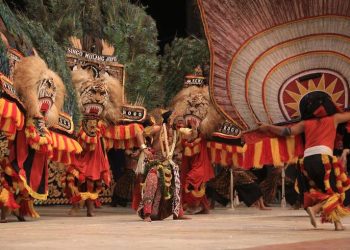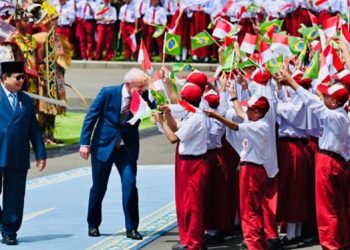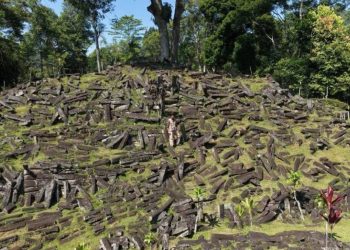Jakarta, Indonesia Sentinel — The Naulu tribe, an isolated indigenous community in Central Maluku, Indonesia, is known for its rich cultural heritage and ancient traditions. Historically residing in the remote areas of Seram Island, specifically in the villages of Sepa and Nuanea, the tribe once practiced a now-extinct ritual that shocked many, the headhunting traditions.
Unlike most Indonesians, the Naulu people do not adhere to mainstream religions, instead following ancestral beliefs passed down through generations. They worship a creator deity called Upu Kuanahatana, as part of an animistic system that reveres ancestral spirits.
These spirits are believed to hold immense influence over human life, requiring worship and offerings to ward off misfortune.
According to National Geographic Indonesia, the act of headhunting was once central to Naulu customs, particularly in the pataheri ritual. This ceremony marked a significant rite of passage for Naulu boys transitioning into adulthood. To prove their maturity, young men were required to present a severed human head to the village, earning them the symbolic honor of wearing a red headband.
The human head was also used as an offering during celebrations or even as part of a dowry in marriage negotiations, demonstrating a man’s bravery and strength. Historically, this extreme practice was used by tribal leaders as a test of valor when selecting a son-in-law.
Finger Cutting of The Dani Tribe: Pain, Grief, and Heritage!
In later years, the Naulu replaced human heads with those of kuskus—a tree-dwelling marsupial—during their rituals. However, the decline of the kuskus population, driven by deforestation and habitat loss, further disrupted this modified tradition.
Naulu Tribe headhunting traditions began to fade in the early 1900s and was largely abandoned by the 1940s. This tradition was also legally banned following a criminal incident in 2005 that was linked to its practice.
Today, headhunting traditions among the Naulu tribe was a history, leaving behind a legacy that offers a rare glimpse into the extreme rituals once practiced in Indonesia’s remote corners. While the tradition has long disappeared, it remains a testament to the Naulu’s unique cultural history and the evolving ways indigenous communities navigate the modern world.
(Raidi/Agung)
























